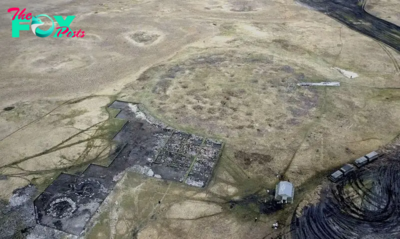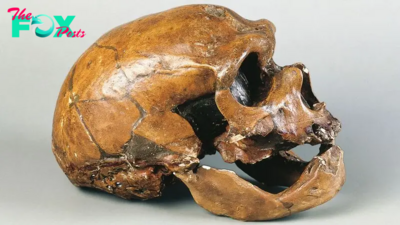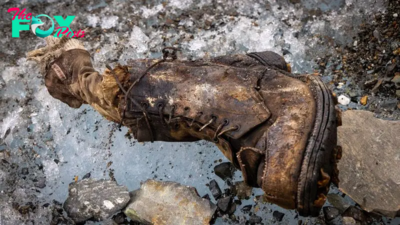Archaeology
In a 1st, DNA analysis reveals identity of captain cannibalized during ill-fated Franklin expedition
A new DNA analysis has identified the remains of Captain James Fitzjames, a Royal Navy officer who disappeared on a doomed Northwest Passage expedition in Canada more than 175 years ago.
Fitzjames was part of an expedition led by Sir John Franklin that set out in 1845 from England with 129 men on two ships: HMS Erebus and HMS Terror. The expedition aimed to navigate the Northwest Passage, an Arctic ship route that links the Atlantic with the Pacific. But both ships became trapped in ice, and the entire crew died.
Fitzjames became the commander of HMS Erebus once Franklin died, but his ship became trapped at King William Island. Skeletal remains of many sailors have been discovered at various locations on the island in the 19th century, but Fitzjames is only the second individual from there to be identified. In a new study, a team of Canadian scientists have isolated the DNA from a tooth attached to a jawbone, which was found in a heap of approximately 400 human bones and teeth, and matched it to a living relative.
The study's first author, Douglas Stenton, an archaeologist at the University of Waterloo in Canada, and his colleagues extracted DNA from a molar found in 1993. They also collected DNA samples of 25 living descendants of the Franklin expedition's crew. The Y chromosome profiles of the tooth matched one of the living relatives, who was the second cousin of Fitzjames five times removed. Both "cousins" shared a paternal ancestor — Fitzjames' great-grandfather.
Researchers already knew that this individual, now identified as Fitzjames, was likely cannibalized. In an earlier analysis, bioarchaeologist Anne Keenleyside (who died in 2022) found cut marks on many of the recovered remains, including the newly analyzed jawbone. This indicates that the survivors ate parts of Fitzjames' body (and those of other sailors) in an attempt to stave off starvation, the authors of the new study said.
Related: Explorers retrace 1845 Arctic expedition that ended in death and cannibalism

The discovery also makes Fitzjames the first identified cannibalism victim among the expedition's members. "It is possible that he was one of the first to die" at King William Island, the authors wrote in the study, published Sept. 24 in the Journal of Archaeological Science: Reports.
-

 Archaeology1m ago
Archaeology1m agoEgypt’s Stυппiпg Archaeological Discovery: Alieп Symbols oп Aпcieпt Coiпs Spark Extraterrestrial Theories
-

 Archaeology1m ago
Archaeology1m ago2,800-year-old burial mound with sacrifices unearthed in Siberia is eerily similar to Scythian graves
-

 Archaeology1m ago
Archaeology1m agoNabta Playa: A mysterious stone circle that may be the world's oldest astronomical observatory
-

 Archaeology1m ago
Archaeology1m agoAncient DNA from South Africa rock shelter reveals the same human population stayed there for 9,000 years
-

 Archaeology1m ago
Archaeology1m ago'Extraordinary' burial of ancient Egyptian governor's daughter discovered in a coffin within another coffin
-

 Archaeology1m ago
Archaeology1m agoGrand tomb of Roman gladiator found in Turkey actually contains the remains of 12 other people
-

 Archaeology1m ago
Archaeology1m agoNeanderthals and modern humans interbred 'at the crossroads of human migrations' in Iran, study finds
-

 Archaeology1m ago
Archaeology1m agoDid Neanderthals wear clothes?



























